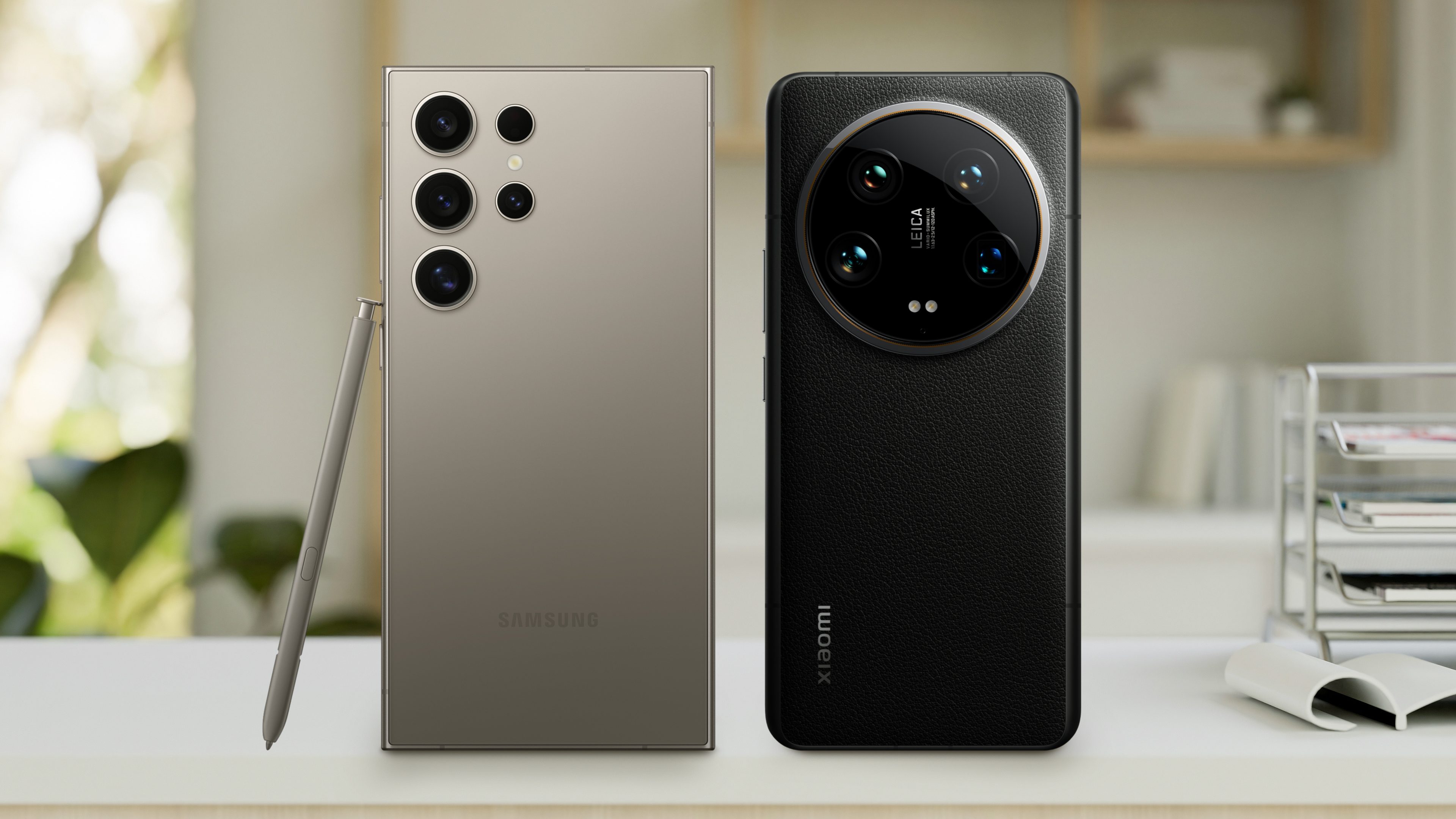

Hades II marks a first for Supergiant Games. This is the first time the studio has revisited a world, its characters, and their stories, and as a result, is its very first direct sequel. In a way, that might seem disappointing, but this is Supergiant Games we’re talking about. Hades is a masterclass in narrative design, addictive gameplay, rewarding progression, beautiful art, etc. It’s excellent across the board. However — this will shock you — Hades II also happens to be brilliant, and it’s not even finished yet!
After 20 hours of playing through the Early Access version, available via Steam and the Epic Games Store, we can tell Supergiant already has another hit on its hands. The studio can’t currently reveal what consoles it will be released on just yet — Switch Successor, maybe? We sure as hell hope so — but we couldn’t wait that long. So we loaded up our Steam Deck to check out this God-like, rogue-like sequel.

Hades II starts off in a familiar way. After the title screen, Melinoë (or Mel, as some call her) — daughter of Hades and the princess of the Underworld — is dropped into Erebus, the waiting place for the souls of the recently deceased. From here, it becomes apparent what you need to do — head down, fight tons of spirits and creatures, and keep heading down until you reach your goal: Chronos, the Titan of Time.
As you clamber down from the Crossroads to the Underworld, that tried-and-true Hades gameplay loop kicks in. Fight enemies, grab rewards, accept boons from Gods, and scrap your way through various biomes. If you die, you’re sent back to your chambers in the Crossroads — a place that sits between the Underworld and the Surface, hidden. You can equip different Nocturnal Arms (weapons) here, talk to your mentor in Hecate, the Goddess of Witchcraft, or get friendly with Odysseus. Oh, and Skelly is back as Schelemeus with a pretty incredible glow-up.
However, while Hades II may feel familiar, if you play it exactly like Hades — fast, furious, and in the enemies’ faces — you’ll soon discover that you’ll die, very quickly.
Melinoë is where Hades II’s biggest differences stem from. She’s the complete opposite of her brother Zagreus — where Zag is brash and rebellious, Mel is studious, devoted, and methodical. For starters, she feels slower than Zagreus: her dash takes a little longer to recharge, and she can only dash once. In exchange, holding down the dash button will allow her to run faster, which is where a lot of the Dash-based boons come into effect. Mel’s cast is different too, and allows for her to put down a magical circle to slow down enemy movement. It means you can’t be quite as aggressive in your playstyle, and you have to think a little bit more about how all the parts work together. And then, when you get that magical boon combination where everything clicks, it feels oh-so-good.
Speaking of magic, being a student of Hecate, Mel is a witch, and she’s extremely proficient with spells and mana. Mel can consume Magick by charging (called an Omega Move) her standard attack, special – usually a ranged attack or a guard, depending on the weapon – or a cast. Your Magick restores over time, and you can increase the rate at which it replenishes with boons or effects. It took us more than a few runs to adjust, but switching the focus from melee to magic and ranged is kind of genius. Hades II might feel similar, but it plays pretty differently.

Mel’s cast, in particular, came in clutch for us in multiple runs. Sometimes, simply dropping it down on top of enemies to slow them was enough, but when we enhanced it with a boon from Aphrodite, which sucks enemies in and inflicts them with Weak, it allowed us to trap enemies and do extra damage to them Alternatively, a boon from Hestia, the Fire Goddess, creates an explosion where the cast circle is placed, which deals huge area-of-effect damage to all foes caught in the blast. These boons, paired with Mel’s unique skills, create a whole new level of satisfaction for us that has us itching to experiment.
Hades II encourages experimentation even more than its predecessor. There’s so much more to manage with Mel, but not in a way that feels overwhelming. Mel can equip Tarot Cards that grant various buffs, but you need to gather ashes to buy more. You can also cast Incantations from the Crossroads to unlock new facilities in both the Crossroads and throughout your journey through the Underworld. Selene, the Moon Incarnate, can appear and grant boons which give Mel a brand new skill — a Hex — that can be activated after spending a certain amount of Magick per floor.

If that’s not enough, Mel’s weapons also vary considerably from Zagreus’ arsenal. The Witch’s Staff is like a spear, but with a bit of range and a slow, heavy special. The Moonstone Axe is extremely slow and powerful and allows Mel to block attacks. We can’t quite grasp how to use the Spectral Flames yet, but there isn’t another weapon quite like it in Hades or the sequel.
This isn’t Hades without a fantastic set of characters, though. And while there are many returning faces, such as Aphrodite, we want to focus on some of the newcomers, all of whom are as charming, delightful, and hilarious as we’ve come to expect. Hestia is already one of our favourites: as one of Hades’ siblings, she’s essentially the “cool” aunt, with a warm but biting sense of humour who calls Mel “hot stuff”. Apollo also makes his debut, and Artemis’ twin couldn’t be any different from the hunter, with his love of the spotlight and chivalrous nature. Their early interactions with Mel are all wonderful, and it seems like they will play a bigger role in the grand story. Oh and, spoilers, everyone is hot. Again.
Mel’s companions at the Crossroads shine, too. Nemesis is jealous of Melinoë because the princess has been picked to take on Chronos and not her. So she causes a little bit of friction in the Crossroads, and sometimes on your journey to the Underworld. In fact, she’ll sometimes challenge you to kill more enemies than her — lose, and you’ll forfeit all of your money. Other times, she’ll offer items at a high price. And sometimes she’ll leave the room and take one of the doors, therefore robbing you of the ability to choose your upgrade. A special shoutout goes to Dora, the sarcastic shade who lives in Mel’s room who tries to be frightening, but really, she’s just adorable.
Would you believe us if we told you we’re only scratching the surface of the Early Access version of the game? Well, we are — there are so many things beyond simply going after Chronos. There are new gods we haven’t even talked about, specific areas to explore, and what happens after beating the final boss of the Early Access. Yet, Supergiant Games has said that “Hades II in Early Access already has more environments, foes, and fully-voiced characters than the full version of the original Hades game.” This is potentially going to be huge.
As it is right now, Hades II is already so, so much more than just “more Hades”. There are enough differences, tweaks, and changes in the gameplay that make it exciting to clamber through the Underworld — albeit down instead of up — all over again. The team plans to update the Early Access version every few months, and it’s expected to stay in EA developer “at least through the end of 2024”. So, obviously, that has us dreaming of a 2025 release on the Switch’s successor. We’ll be there on day one, you can count on it.
Have you checked out Hades II in Early Access yet? Or are you replaying the first game to satiate your appetite? Let us know in the comments.

Hades II marks a first for Supergiant Games. This is the first time the studio has revisited a world, its characters, and their stories, and as a result, is its very first direct sequel. In a way, that might seem disappointing, but this is Supergiant Games we’re talking about. Hades is a masterclass in narrative design, addictive gameplay, rewarding progression, beautiful art, etc. It’s excellent across the board. However — this will shock you — Hades II also happens to be brilliant, and it’s not even finished yet!
After 20 hours of playing through the Early Access version, available via Steam and the Epic Games Store, we can tell Supergiant already has another hit on its hands. The studio can’t currently reveal what consoles it will be released on just yet — Switch Successor, maybe? We sure as hell hope so — but we couldn’t wait that long. So we loaded up our Steam Deck to check out this God-like, rogue-like sequel.

Hades II starts off in a familiar way. After the title screen, Melinoë (or Mel, as some call her) — daughter of Hades and the princess of the Underworld — is dropped into Erebus, the waiting place for the souls of the recently deceased. From here, it becomes apparent what you need to do — head down, fight tons of spirits and creatures, and keep heading down until you reach your goal: Chronos, the Titan of Time.
As you clamber down from the Crossroads to the Underworld, that tried-and-true Hades gameplay loop kicks in. Fight enemies, grab rewards, accept boons from Gods, and scrap your way through various biomes. If you die, you’re sent back to your chambers in the Crossroads — a place that sits between the Underworld and the Surface, hidden. You can equip different Nocturnal Arms (weapons) here, talk to your mentor in Hecate, the Goddess of Witchcraft, or get friendly with Odysseus. Oh, and Skelly is back as Schelemeus with a pretty incredible glow-up.
However, while Hades II may feel familiar, if you play it exactly like Hades — fast, furious, and in the enemies’ faces — you’ll soon discover that you’ll die, very quickly.
Melinoë is where Hades II’s biggest differences stem from. She’s the complete opposite of her brother Zagreus — where Zag is brash and rebellious, Mel is studious, devoted, and methodical. For starters, she feels slower than Zagreus: her dash takes a little longer to recharge, and she can only dash once. In exchange, holding down the dash button will allow her to run faster, which is where a lot of the Dash-based boons come into effect. Mel’s cast is different too, and allows for her to put down a magical circle to slow down enemy movement. It means you can’t be quite as aggressive in your playstyle, and you have to think a little bit more about how all the parts work together. And then, when you get that magical boon combination where everything clicks, it feels oh-so-good.
Speaking of magic, being a student of Hecate, Mel is a witch, and she’s extremely proficient with spells and mana. Mel can consume Magick by charging (called an Omega Move) her standard attack, special – usually a ranged attack or a guard, depending on the weapon – or a cast. Your Magick restores over time, and you can increase the rate at which it replenishes with boons or effects. It took us more than a few runs to adjust, but switching the focus from melee to magic and ranged is kind of genius. Hades II might feel similar, but it plays pretty differently.

Mel’s cast, in particular, came in clutch for us in multiple runs. Sometimes, simply dropping it down on top of enemies to slow them was enough, but when we enhanced it with a boon from Aphrodite, which sucks enemies in and inflicts them with Weak, it allowed us to trap enemies and do extra damage to them Alternatively, a boon from Hestia, the Fire Goddess, creates an explosion where the cast circle is placed, which deals huge area-of-effect damage to all foes caught in the blast. These boons, paired with Mel’s unique skills, create a whole new level of satisfaction for us that has us itching to experiment.
Hades II encourages experimentation even more than its predecessor. There’s so much more to manage with Mel, but not in a way that feels overwhelming. Mel can equip Tarot Cards that grant various buffs, but you need to gather ashes to buy more. You can also cast Incantations from the Crossroads to unlock new facilities in both the Crossroads and throughout your journey through the Underworld. Selene, the Moon Incarnate, can appear and grant boons which give Mel a brand new skill — a Hex — that can be activated after spending a certain amount of Magick per floor.

If that’s not enough, Mel’s weapons also vary considerably from Zagreus’ arsenal. The Witch’s Staff is like a spear, but with a bit of range and a slow, heavy special. The Moonstone Axe is extremely slow and powerful and allows Mel to block attacks. We can’t quite grasp how to use the Spectral Flames yet, but there isn’t another weapon quite like it in Hades or the sequel.
This isn’t Hades without a fantastic set of characters, though. And while there are many returning faces, such as Aphrodite, we want to focus on some of the newcomers, all of whom are as charming, delightful, and hilarious as we’ve come to expect. Hestia is already one of our favourites: as one of Hades’ siblings, she’s essentially the “cool” aunt, with a warm but biting sense of humour who calls Mel “hot stuff”. Apollo also makes his debut, and Artemis’ twin couldn’t be any different from the hunter, with his love of the spotlight and chivalrous nature. Their early interactions with Mel are all wonderful, and it seems like they will play a bigger role in the grand story. Oh and, spoilers, everyone is hot. Again.
Mel’s companions at the Crossroads shine, too. Nemesis is jealous of Melinoë because the princess has been picked to take on Chronos and not her. So she causes a little bit of friction in the Crossroads, and sometimes on your journey to the Underworld. In fact, she’ll sometimes challenge you to kill more enemies than her — lose, and you’ll forfeit all of your money. Other times, she’ll offer items at a high price. And sometimes she’ll leave the room and take one of the doors, therefore robbing you of the ability to choose your upgrade. A special shoutout goes to Dora, the sarcastic shade who lives in Mel’s room who tries to be frightening, but really, she’s just adorable.
Would you believe us if we told you we’re only scratching the surface of the Early Access version of the game? Well, we are — there are so many things beyond simply going after Chronos. There are new gods we haven’t even talked about, specific areas to explore, and what happens after beating the final boss of the Early Access. Yet, Supergiant Games has said that “Hades II in Early Access already has more environments, foes, and fully-voiced characters than the full version of the original Hades game.” This is potentially going to be huge.
As it is right now, Hades II is already so, so much more than just “more Hades”. There are enough differences, tweaks, and changes in the gameplay that make it exciting to clamber through the Underworld — albeit down instead of up — all over again. The team plans to update the Early Access version every few months, and it’s expected to stay in EA developer “at least through the end of 2024”. So, obviously, that has us dreaming of a 2025 release on the Switch’s successor. We’ll be there on day one, you can count on it.
Have you checked out Hades II in Early Access yet? Or are you replaying the first game to satiate your appetite? Let us know in the comments.






